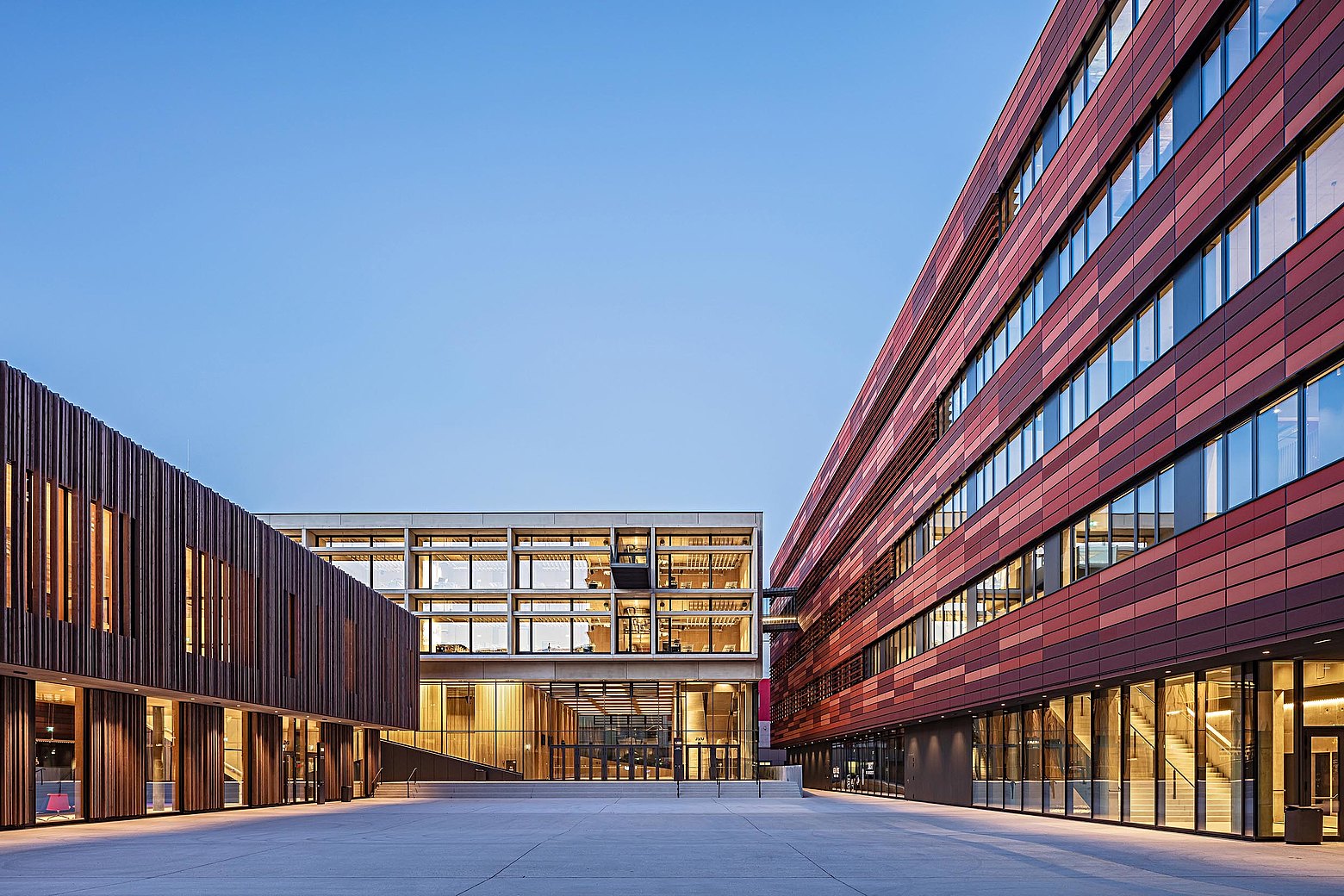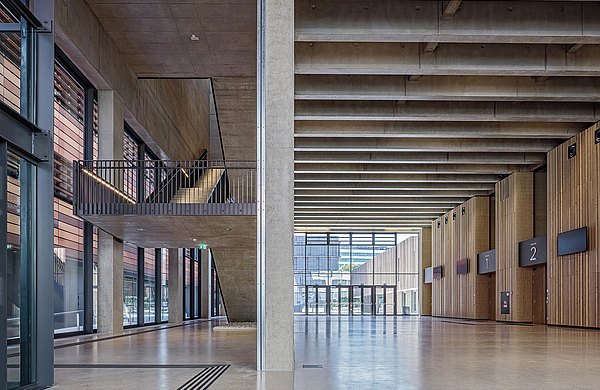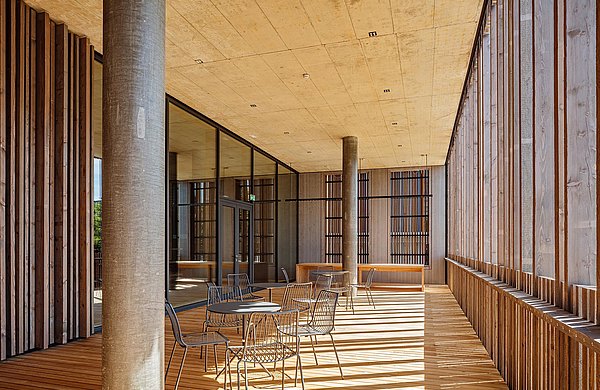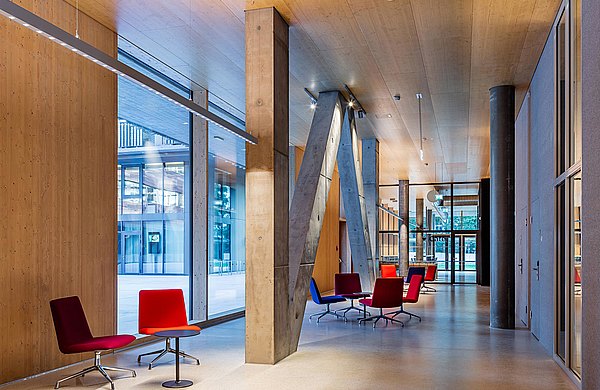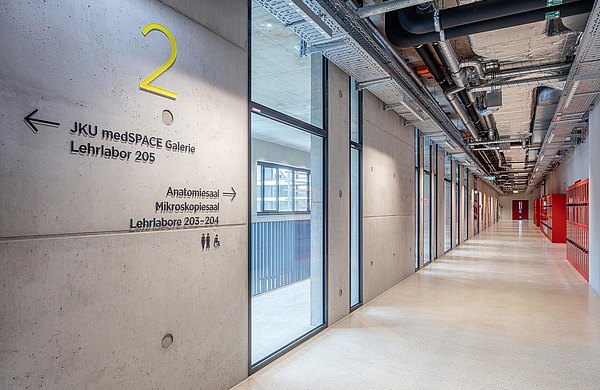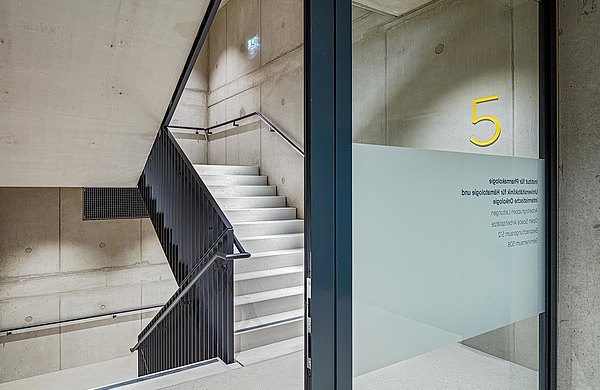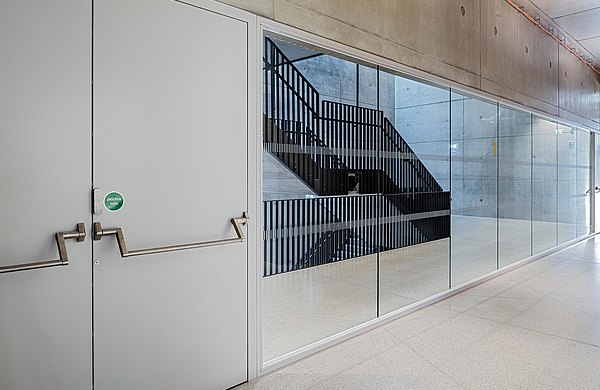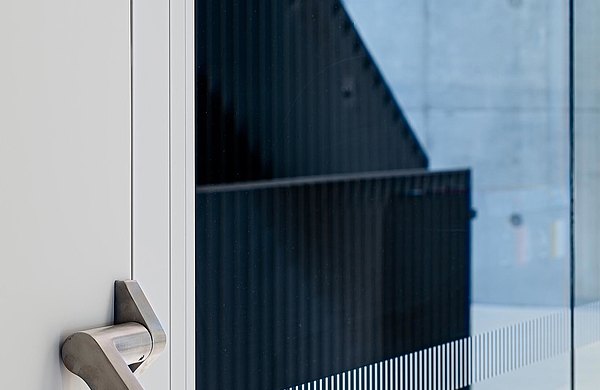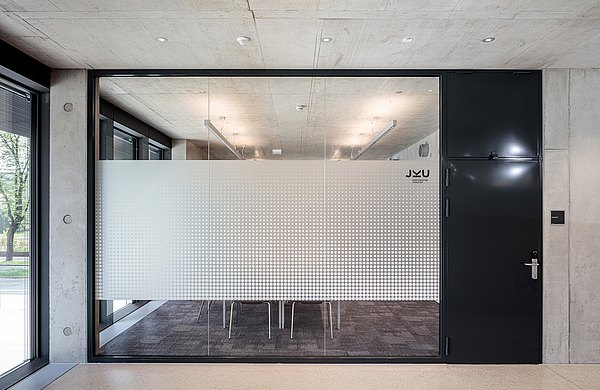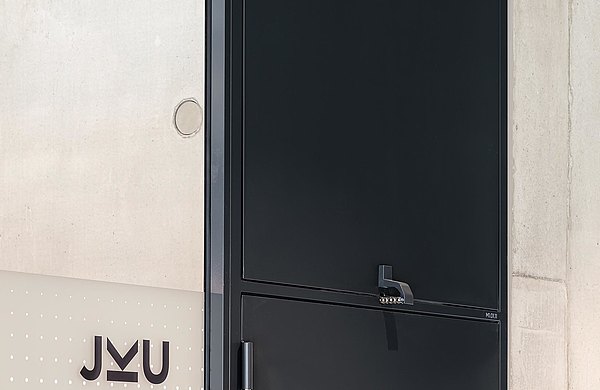Medical faculty Linz
A new campus for cutting-edge research and teaching
The last two years in particular have shown just how important healthcare and medical research are. Networked knowledge, technological developments and concentrated, cross-departmental, global communication have demonstrably resulted in ever-greater medical challenges being overcome. The MED Campus Linz at the Kepler University Clinic is a new hub for top-class learning and research. The Lorenzateliers architecture office from Austria was responsible for drawing up the blueprints and ensuring their relevance in an urban context. Inside the building, door systems and fixed glazing from Forster ensure the necessary fire protection, a lot of transparency and a sense of elegance in line with the sober, clear style.
The proposal from Lorenzateliers already stood out during the EU-wide tendering process for the construction of the new medical faculty at JKU Linz back in 2015. Six years later, and the ensemble consisting of four different structures that all meet to form a rectangular, open campus square was opened. Classrooms and research rooms, laboratories and lecture halls, offices, a library, café, supermarket and other shops are now found across an area measuring 12,500 square metres. Thanks to their heterogeneous design, the buildings have a real urban flair. Areas open to the public – such as the foyer, café or meeting rooms – are located on the ground floors around the central square. The result is an open zone that offers up to 1,800 students, 250 teachers and guests an inviting place to meet and exchange experiences.
Cutting-edge medical technology
The new faculty really stands out, not least thanks to its facilities and infrastructure for enabling practice-orientated study and the latest teaching technologies. The 125-square-metre medSPACE, for example, not only forms the core of the laboratory and research area – it is also a global innovation as well. Three-dimensional, high-definition imagery and live feeds from operations can be looked at and analysed here in a quality that is second to none. The unit is the result of work carried out by a research alliance, and allows for a pioneering, photorealistic representation of the human anatomy.
Multi-faceted architecture
Both inside and outside, the design of the building has also been met very positively by the various user groups. The architects chose a mixture of many different colours and materials that still blend in perfectly with each other. This includes ceramic cladding, steel, concrete, wood and glass on the façades, for example, or exposed concrete, wood panelling, carpets or rubber floors, glass interior walls, acoustic panels, light elements and refined furniture inside the buildings. The colour scheme consists of ten colours from Le Corbusier’s “Polychromie Architecturale” system, resulting in a mixture of rich tones in matching contrasts.
Safety and aesthetics go hand in hand
The building interior is characterised by an industrial flair. This is emphasised by the predominance of exposed concrete and lack of suspended ceilings in the access areas, among other aspects. The thin, flush steel profiles from Forster are the perfect match for this concept. A total of 68 doors and around 700 square metres of fixed glazing from Forster were used, principally as closures in the stairways, offices or institute areas. Products from the forster fuego light series offer the necessary fire protection in classes El30 or El60, whilst the interior glazing with forster presto without fire protection function underlines the clear aesthetics inside the buildings. It was possible to design the expansive glazed surfaces without subdivisions with only silicone joints, interrupted by large sheet metal doors made from powder-coated steel. The slim frames and wall-flush elements can be realised extremely well from recyclable material, and emphasise the contribution that Forster has made to the MED Campus Linz. The many different configurations and component combinations also include doors that are delivered as part of a system together with high-quality locks, fittings, cabling and access control elements. The Forster solutions thus give that special final touch to the architecture, offering optimal conditions both in terms of functionality and aesthetics for cutting-edge medical research and teaching at the new campus.
Linz, Austria
fixed glazing (forster presto)
fire resistant doors El30/El60 (forster fuego light)
Architecture: Lorenzateliers ZT GmbH, Innsbruck/Wien (AT)
Metal fabrication: Allmetall Aluminium- und Stahlbau GmbH, Klagenfurt (AT)
Client: Kepler Universitätsklinikum GmbH, Linz (AT)
Photography: Martin Steinkellner

